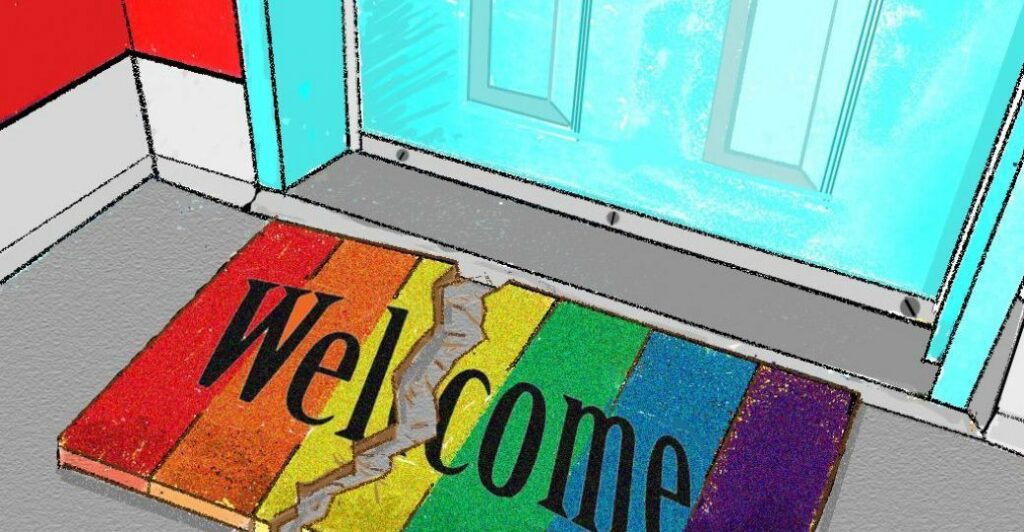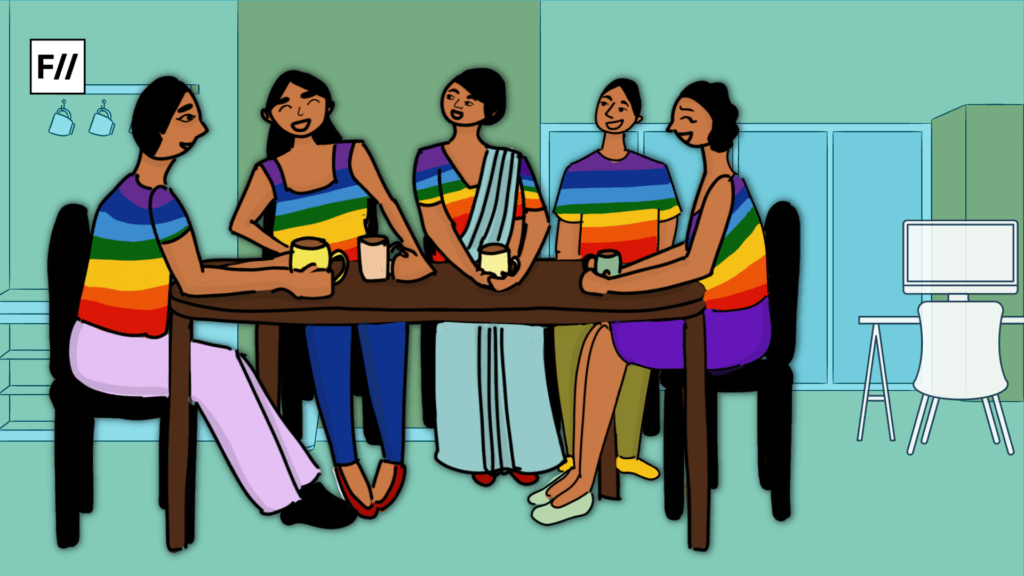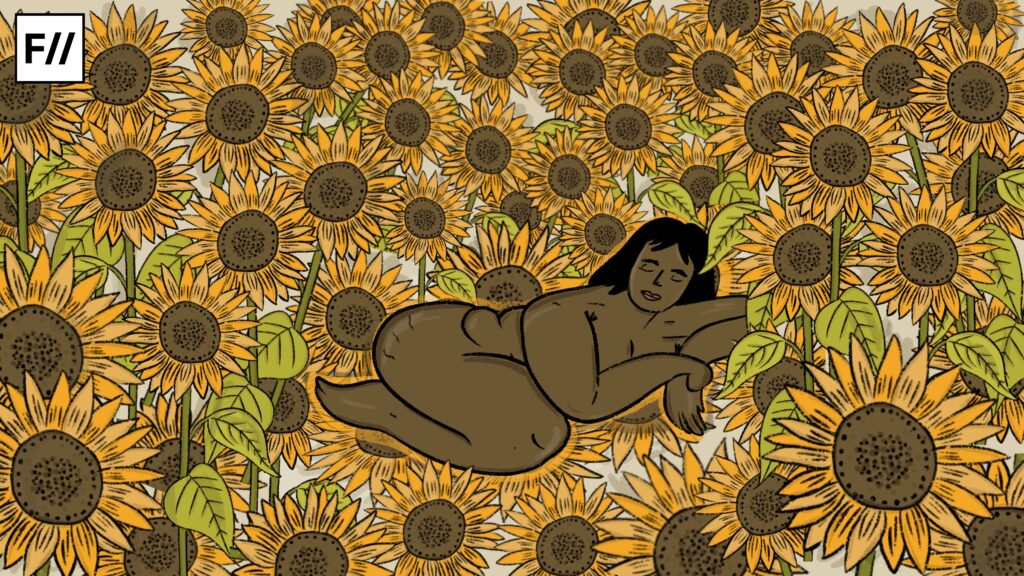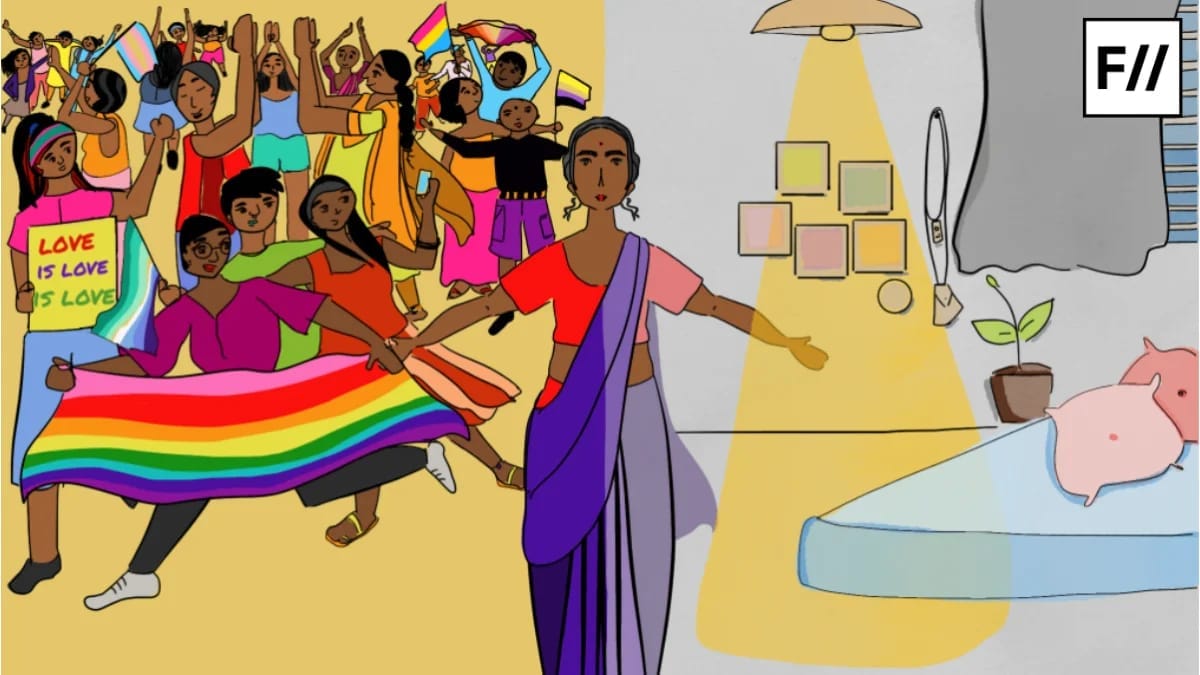In the last few years, potentially due to the pandemic-caused confinement at home, the topic of third places has gained prominence in popular discourse. They can be described simply as a place of leisure and places for people to exist outside of home and work. According to Ray Oldenburg, who coined the term, they are an essential part of social functioning. For queer people, especially, safe third spaces are more of a need than a want.
While there have, in the past decade, been reforms and a slight increase in acceptance, the public and private existence of the queer community continues to be dictated by society and the law. Amidst the ongoing struggle for legalised civil unions, the need for dialogue and support remains and is arguably ever-increasing. In Bengaluru, a city with a population of over 14 million and a sizeable queer population, there exist many such spaces where members of the community converge and converse.
Bengaluru’s first queer third space
It all started in 1994 with Good As You, one of India’s oldest queer groups. Good As You arose from informal meetings, quickly turning into an actual support group, and has been running ever since, witnessing a footfall of thousands over the years. As a non-funded group, it is survived through the contributions of its attendees. Since the founding of Swabhava, an NGO that provides mental health support to LGBTQIA+ people, the group has housed itself at their office. Good As You meetings provide a platform to discuss personal concerns, topical issues, and other relevant topics.

Vinay Chandran, one of the members of this group told FII ‘Good As You hopes to continue to be a safe space for LGBTQIA+ people to come and speak their minds and seek advice on various aspects of their queer lives such as coming out to family, avoiding marriage pressures, managing workplace pressures, exploring relationships and friendships, and so on. The group continues to welcome people of all oppressed genders and sexualities and other statuses to participate.’
Ensuring queer public safety
Since the conception of Good As You, several such groups have emerged, many of whom are organisations focused on making public spaces safer for queer people. Raahi is one such organisation. Founded in 2018, the NGO focuses on crisis intervention, particularly for AFAB individuals, and stands as the only such organisation in all of Karnataka.
Alongside providing pro bono legal assistance, access to mental health support, and short-term shelter, they also organise meetings and sensitisation training with government departments, hospitals, and the police.
One of their main efforts is with private & public hospitals in Bengaluru where they are attempting to create a more accepting outlook towards not only the treatment of queer people but also gender-affirmation surgery. According to Suchitra KK, Raahi’s executive director, they hope to make it mandatory for all Bengaluru hospitals to undergo sensitisation training to curb violence and discrimination faced by queer people in medical spaces.
She adds that while Bengaluru ‘may not necessarily be progressive or supportive but the nature of the city is that they don’t have enough time to care about others. The community within Bengaluru is very aware and friendly. Society didn’t intentionally provide space for the community, it just happened,’ giving credit to the city’s fast-paced, busy nature for its relative acceptance of the queer community.
Queer existence in public
Goaty K, the general secretary of Bengaluru Frontrunners (BFR), a queer running group, agrees saying ‘We can express ourselves and nobody cares, until and unless we’re overexpressive, then that might be an issue.’ They add further, ‘Sunday runs are usually in Cubbon Park, and Cubbon Park is usually known to be accepting. For pride runs and rainbow runs, we encourage people to dress up, come in colours. Nobody cares, no one has ever asked us anything; we’ve never seen any discrimination in the places we’ve met up.‘

Associated with International Frontrunners, BFR has been running since 2021 when they organised the first Rainbow Run during Namma Pride. What started with a group of 5-8 people now sees at least 40 people during each weekly run. It was started to expand queer spaces in Bengaluru beyond just party culture and provide queer people to express themselves healthily. The runs encourage people to mingle with each other and find community. They motivate their members to participate in fun runs & marathons and provide funding to participate for those in need.
Sadly many major runs don’t have specific categories outside the binary, creating unease for some queer & gender non-conforming participants. When questioned and asked to make changes, BFR is met with vague answers about expanding their categories, saying they’ll do so ‘next year.’
Thus, for much of Bengaluru’s queer population, collective public existence is beyond the matter of the community, also about visibilising themselves to the world. And, along those same lines, these safe spaces are often found out in the open.
In the same vicinity within Cubbon Park also exists Queer Campus Bangalore (QCB). QCB is a queer youth collective which was, following similar models of ‘Queer Campus‘ across Indian cities, formed to address the lack of youth-led queer spaces in the country. It was founded by two queer college students, Anurag and Ria, in 2011 and has been functional ever since. They meet once every month usually for a picnic but also film screenings and as a book club.
While the idea with Queer Campus was initially to cater to a university crowd, university campuses weren’t open to them and they moved towards becoming a public collective. While, especially as youngsters, there is an underlying fear about safety, their meetings have taken place so far without any major issues or disruptions. One problem, however, has been that of money.
As a volunteer-led collective, there is only so much they can do to run QCB. One of the admins, Duha says ‘finances and money is a question that sometimes disrupts the order of the safe space. this is a conversation that not a lot of spaces want to have.’ However, she adds ‘What has kept us going is that we’ve assured people that this is a youth-led space‘ and youth-led spaces are as needed as ever.

Many times, established places pull through to support queer groups. Atta Galata for instance, has been home to Queer Reads Bengaluru, a queer book club, since its inception in 2014 (and pro bono too!). Interestingly, Queer Reads Bengaluru arose from a Good As You meeting when a few members wanted to create spaces that evolved beyond the support group. It’s been run since by Rohini Malur and facilitated through a WhatsApp group.
Rohini believes that cultural and monetary factors are pushing a lot more places to be open these days and still some places, while safe for gender-conforming folks aren’t as safe for trans folks or those in drag. Last Pride, Queer Reads held Shabda, an open mic event at Bookworm, for free where things went well.
However, when two attendees walked down the street to another establishment, they were discriminated against. ‘On the same street, you can have two different kinds of experiences,’ says Rohini. However, ultimately, she said, ‘the city is getting more queer because we’re getting more queer.’
Building community and queer visibility
Out and About (OAA), a queer travel group, has existed, loud and proud, since 2016, long before the abrogation of section 377. Founding member, Prasenjit started OAA to connect people– a vision that has been successful.

The group goes, mostly, on treks to nearby places outside the city, allowing queer people, especially those not out yet, to exist freely in a different space. The treks also get quite personal as people find it easier to share with strangers (as a practice run almost), which has enabled many to come out when they return home. Fortunately, their trips have always been safe, with no hostility.
Even back in the city, OAA carries out efforts to both sensitise society and expand dialogue within the community. They have library hangouts, city hangouts, heritage walks, and also special hangouts for single queer folks over the age of 40. ‘They’re the first generation in India to live gay so there’s no script or template which can get a little challenging. Finance, navigating life, it gets difficult. So we do this just to nurture a sense of community and belonging,’ says Prasenjit.
In a city as big and diverse as Bengaluru, there is something for everyone. A queer network exists through word of mouth which unites advocacy efforts and Namma Pride. A skeleton ecosystem has grown over the years, with help and support from each other, paving the way for a brighter, more queer-friendly Bengaluru.
About the author(s)
Spoorthi is a material feminist, academically rooted in cultural studies. She enjoys analyzing films and applying feminist critique to media & media structures.






